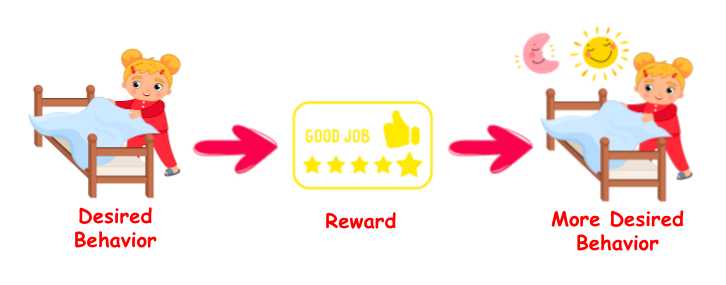Difference Between Bribery and Reinforcement
Did you know what is Difference Between Bribery and Reinforcement? Bribery and reinforcement are two different concepts that have the ability to influence human behavior.
Bribery is a one-time exchange of goods or services for a desired behavior, while reinforcement is a consistent and predictable consequence that increases the likelihood of a behavior occurring again in the future.
These both focus on altering individuals’ behavior, they vary significantly in their ethical implications, societal effects, and their use across various situations.
While both involve providing incentives, rewards, or benefits, they differ in intent, context, legality, and ethical implications. We are going to discuss differences between both terms and their impacts on our society.
Here is a table that summarizes the key differences between bribery and reinforcement:
| Feature | Bribery | Reinforcement |
|---|---|---|
| Timing | Given before the desired behavior occurs | Given after the desired behavior occurs |
| Control | Recipient has control over whether or not to engage in the desired behavior | Giver has control over whether or not to give the reward |
| Motivation | Based on extrinsic motivation | Based on intrinsic motivation |
| Long-term effects | Can have a negative impact on long-term motivation | Can have a positive impact on long-term motivation |
Bribery

Bribery is defined as the offering, giving, receiving, or soliciting of any thing to influence an individual or group’s action. It often use in situations where the person being bribed is not motivated to do something on their own. Bribery is generally consider unethical and in many cases, as it serves the interests of the briber at the expense of others.
Example: In a political scenario offer monetary incentives to a government official to vote in favor of a particular policy.
A parent might bribe their child with a toy in order to get him to eat vegetables.
Reinforcement

Reinforcement is a technique used in behavioral psychology that aims to strengthen the likelihood of a specific behavior repeatedly. It is a more positive and effective way to influence behavior. Reinforcement works by rewarding a desired behavior, which makes the person more likely to do it again in the future. Reinforcement is an essential concept in fields such as psychology, education, and parenting. It can be used to teach new behaviors, or to increase the frequency of existing behaviors.
Example: A parent might praise their child for keeping their room clean, which, in turn, encourages the child to maintain cleanliness regularly.
Difference Between Bribery and Reinforcement
- Timing: Bribes are typically given before the desired behavior occurs, while reinforcement is given after.
- Legality: Bribery is generally considered illegal and unethical, while reinforcement is a legal and widely accepted practice in various fields, such as education, parenting, and workplace management.
- Control: Bribes give the recipient control over the situation, as they can choose whether or not to engage in the desired behavior in exchange for the bribe. Reinforcement, on the other hand, gives the giver control, as they can withhold the reward until the desired behavior has been performed.
- Motivation: Bribes are typically motivated by a desire for something external, such as money or a toy. Reinforcement, on the other hand, is motivated by a desire to please the person providing the reinforcement or to avoid punishment.
- Effectiveness: Bribes can be effective in the short-term, but they are not typically effective in the long-term. Reinforcement, on the other hand, can be effective in both the short-term and the long-term.
- Long-term effects: Bribes can have a negative impact on long-term motivation. Reinforcement, on the other hand, can have a positive impact on long-term motivation.
- Outcome: Bribery often leads to corruption, mistrust, and inequality, as it benefits only those who engage in the act. Reinforcement, when used appropriately, can lead to long-term positive outcomes, such as improved performance, increased motivation, and better relationships.
Impacts on Communities, Organizations, and Individuals
Bribery’s far-reaching consequences include poor decision-making, economic inequality, mistrust among individuals, organizational inefficiencies, and decreased innovation. Ultimately, bribery perpetuates a corroded societal environment that hinders both growth and prosperity.
Reinforcement, when used ethically, promotes personal development, organizational growth, resilience, and increased motivation. It can lead to a psychologically healthy society where individuals feel encouraged to succeed and thrive within a fair and supportive structure.
Recommendations for Minimizing Bribery
- Implement stricter laws and regulations with appropriate oversight to deter and punish bribery.
- Encourage organizations to adopt strong anti-bribery policies and cultivate a transparent and ethical culture.
- Promote awareness and education to empower individuals in recognizing and denouncing bribery.
- Focus on reinforcing desired behaviors through positive methods, such as praise, rewards, and constructive feedback.
- Encourage a growth mindset that embraces challenges and failures as essential to learning and development.
Refence Link

